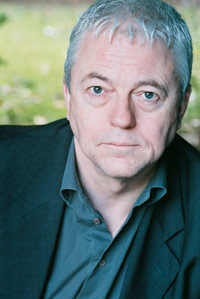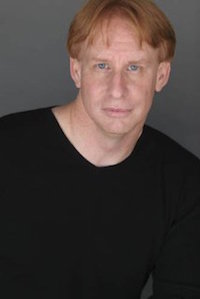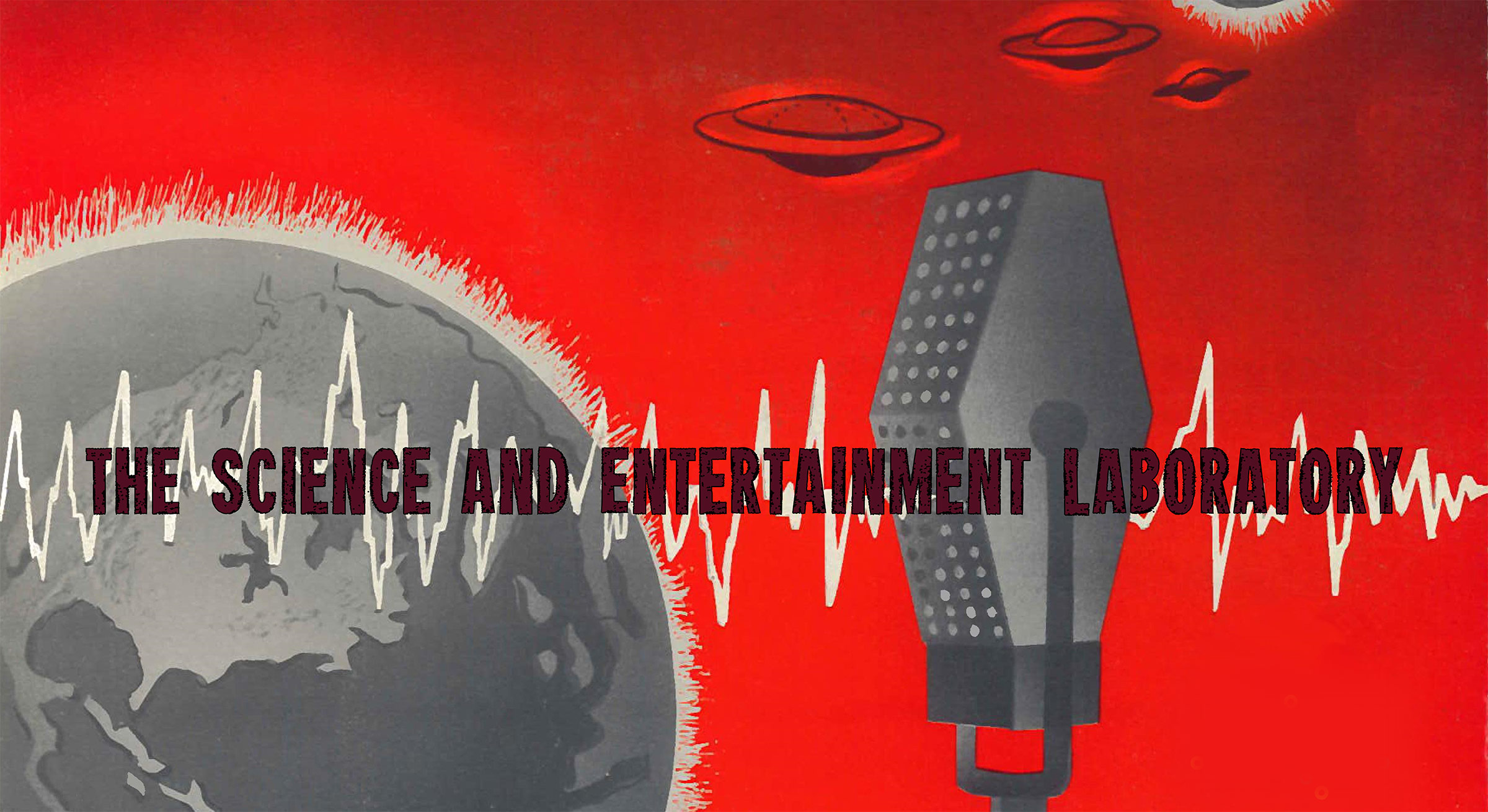[You find the Science and Entertainment Lab report/Storify of this event here, and blogs on the event here, here, and here. Enjoy.]
Stories About Science: Exploring Science Communication and Entertainment Media
University of Manchester, 4-5 June 2015
We are now in a golden age for science in entertainment. Academy Award winning films such as Gravity and The Theory of Everything, and television ratings titans like The Big Bang Theory have proven that science–based entertainment products can be both critically acclaimed and financially successful. In fact, many high profile scientific organizations including the US National Academy of Sciences and the Wellcome Trust in the UK now believe that science communication can, and perhaps should, be both informative and entertaining. These groups have embraced movies and television as legitimate vehicles for science communication by developing initiatives to facilitate scientific involvement in the production of films and television programs. Science communication scholarship on entertainment media has been slow to catch up with the enthusiasm shown by these scientific organizations, as science communication studies of science in mass media still predominantly focus on news media and factual documentaries.
This Wellcome Trust-funded two-day symposium brings together scholars from across disciplines to explore the communication of science through entertainment media in order to uncover new ways of approaching, understanding, and theorizing about this topic. Our exciting range of speakers will explore science communication and entertainment media from a variety of disciplinary and global perspectives as it is practiced and experienced by a diverse array of publics.
The event will run from Thursday 4 to Friday 5 June 2015 and is organized by the Science and Entertainment Lab research group within the Centre for the History of Science, Technology and Medicine at the University of Manchester, comprised of David A. Kirby, William R. Macauley, and Amy C. Chambers. There is no cost for attending the symposium, but spaces are limited. Please contact the organizers if you are interested in attending or if you would like further details storiesaboutscience@manchester.ac.uk
Plenary Speakers:
Stephen Gallagher (Novelist, screenwriter, producer, and director)
 Beginning his TV career with the BBC’s Doctor Who, Stephen Gallagher went on to establish himself as a writer and director of high-end miniseries and primetime episodic television. He has adapted and created short and feature-length thrillers and crime dramas including Chimera, Oktober, Life Line, and Silent Witness. In the US he was lead writer on NBC’s Crusoe, creator of CBS Television’s Eleventh Hour, and Co-Executive Producer on ABC’s The Forgotten. His fourteen novels include Down the River, Rain, Valley of Lights, and Nightmare, With Angel. He’s the creator of Sebastian Becker, in a series of novels beginning with The Kingdom of Bones and The Bedlam Detective.
Beginning his TV career with the BBC’s Doctor Who, Stephen Gallagher went on to establish himself as a writer and director of high-end miniseries and primetime episodic television. He has adapted and created short and feature-length thrillers and crime dramas including Chimera, Oktober, Life Line, and Silent Witness. In the US he was lead writer on NBC’s Crusoe, creator of CBS Television’s Eleventh Hour, and Co-Executive Producer on ABC’s The Forgotten. His fourteen novels include Down the River, Rain, Valley of Lights, and Nightmare, With Angel. He’s the creator of Sebastian Becker, in a series of novels beginning with The Kingdom of Bones and The Bedlam Detective.
Kevin R. Grazier (Planetary scientist, science advisor, writer, and producer)
 Kevin R. Grazier has served as the science advisor for several television series and movies, including SyFy’s Defiance, TNT’s Falling Skies, and the film Gravity. He performed the same advisory role for four seasons on Battlestar Galactica, as well Eureka, Battlestar Galactica: Blood and Chrome, The Event, and The Zula Patrol. Previously he was a research scientist and science planning engineer for 15 years at NASA’s Jet Propulsion Laboratory (JPL) on the Cassini/Huygens Mission to Saturn and Titan. Still an active planetary scientist, his research areas include numerical method development, and long-term large-scale computer simulations of Solar System dynamics, evolution, and chaos.
Kevin R. Grazier has served as the science advisor for several television series and movies, including SyFy’s Defiance, TNT’s Falling Skies, and the film Gravity. He performed the same advisory role for four seasons on Battlestar Galactica, as well Eureka, Battlestar Galactica: Blood and Chrome, The Event, and The Zula Patrol. Previously he was a research scientist and science planning engineer for 15 years at NASA’s Jet Propulsion Laboratory (JPL) on the Cassini/Huygens Mission to Saturn and Titan. Still an active planetary scientist, his research areas include numerical method development, and long-term large-scale computer simulations of Solar System dynamics, evolution, and chaos.
Kevin will be giving a public lecture on the night before the start of the conference, 3rd June at 6.30pm. Details and ticket booking (it’s free) can be found here.
Symposium Themes and Panels
A full list of titles and abstracts can be found at the end of this page as a pdf – this is listed in alphabetical order.
–
Walking with Animals
Jean-Baptiste Gouyon (Univeristy College London) ‘“As if eavesdropping on actual filming”: Looking at the origins of the wildlife MOD genre’
Eleanor Louson (York University, Toronto) ‘“But really what I’m doing there was capturing stories”: Wildlife films as storytelling’
Laura Fogg Rogers (University of West England) ‘Emotional engineering: The story of Robots vs Animals’
Kristian H. Nielsen (Aarhus University, Denmark) ‘A Curious Story: How Curious George was adapted for entertainment media and science education’
Performing Science
Simon Parry (University of Manchester) ‘The dystopian performative in contemporary theatre of science’
Christopher Herzog (University of Salzburg, Austria) ‘Spectating the Mind: Concepts of the human in contemporary neuroscience plays’
Hsiang-Fu Huang (University College London) ‘Theatres of the Heavens: narratives of the wonders, from nineteenth-century playhouses to modern planetariums’
Adam Shapiro (Birkbeck University) ‘Entertaining ideas about science in the American periphery: A rural history of popularization’
–
Science Fiction
Jesse Olszynko-Gryn (University of Cambridge) ‘Science fiction cinema in the Malthusian moment: Z.P.G. and Soylent Green’
Lyle Skains (Bangor University) ‘The Catastrophe of Science Fiction Since 1950: The role reversal of science and the supernatural in 20th century narratives’
Kaijun Chen (Max Planck Institute) ‘Interplanetary War in the Eleventh Dimension: Popular military imagination of basic science in contemporary Chinese sci-fi’
–
Celebrity Science
Declan Fahey (American University) ‘Scientific Celebrity as Science Authority: The Case of Neil deGrasse Tyson’
Felicity Mellor (Imperial College) ‘Trapped in Another Chapter of the Stephen Hawking Story: On cosmic origins and narrative beginnings’
Benjamin Gross (Chemical Heritage Foundation, Philadelphia) ‘Chatting About Cosmos: Social media as a platform for discussing science and its history’
–
Science and Comedy
Emma Weitkamp (University of West England) ‘Humour, Narrative, and Science: Comics as science communication’
Hauke Riesch (Brunel University) ‘Science comedy, activism, and distinction’
Oliver Marsh (University College London) ‘“People seem to really enjoy the mix of humour and intelligence”: Science fandom in online social media’
–
Science on Screen
Rashel Li (Australian National University) ‘“I believe in a gender blind society like Star Trek”: The importance of portraying gender balance in science on The Big Bang Theory’
Chiara Zuanni (University of Manchester) ‘Mummies on a Screen: Between hyperreality and popular culture’
Caitjan Gainty (Kings College London) ‘CPR, TV, and democracy in America’
Sai Pathmanathan (Freelance Science Consultant/Independent Scholar) ‘Children’s Entertainment Media: Inside and outside of the primary classroom’
–
Science and Citizens
Robert Bud (Science Museum, London) ‘Making Science Concepts in the Media: The British story of the early 1930s’
Bruce Lewenstein (Cornell University) ‘Telling Stories About Citizen Science’
Aharon Armon (Kings College London) ‘Science Fiction as Current Affairs: Imaginary landscapes and futurist orientations in broadcast scientific interviews’

 Follow
Follow
7 comments for “Stories About Science: Exploring Science Communication and Entertainment Media”